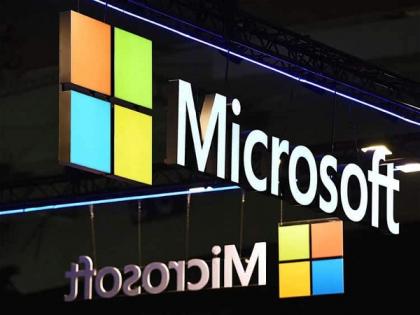Is Google's Search dominance over? Microsoft Releases AI powered Bing
By Lokmat English Desk | Updated: February 9, 2023 17:47 IST2023-02-09T17:45:10+5:302023-02-09T17:47:18+5:30
Microsoft’s use of the artificial intelligence used in ChatGPT to disrupt the internet search market is set to demolish ...

Is Google's Search dominance over? Microsoft Releases AI powered Bing
Microsoft’s use of the artificial intelligence used in ChatGPT to disrupt the internet search market is set to demolish the high profit margins that have underpinned Google’s core business, Microsoft chief executive Satya Nadella has predicted. After its recent $10 billion investment in OpenAI, Microsoft is now overhauling its Bing search engine and Edge browser with a next-generation OpenAI large language model. Bing and Edge will now tap into OpenAI’s infrastructure to give you summarized answers to your specific search queries instead of presenting you with an overwhelming amount of search result links.
Microsoft is also applying the new AI model to its search algorithm and claims the new OpenAI model used in Bing and Edge is faster, more accurate and more capable than ChatGPT. Bing will retain its classic search results page though it will now give more relevant results for basic queries. Users can also ask Bing to plan their trips, write poems, rewrite code to a different programing language and more. The new AI chat feature will bring out a sidebar where you can type out short or long search queries, receive answers and then refine your question until you receive the answer you need. Microsoft Edge will also come baked with OpenAI and users will be able to get contextual information for the page they are browsing. The sidebar in Edge has chat, compose, overview and site info tabs. Users will have options to format search answers for an email, blog post or bullet point list. Users can also set a length for the answer ranging from short to medium and long. Google is scrambling to make up lost ground since the arrival of ChatGPT, which provides text answers to complex questions directly rather than requiring the use of a traditional search engine. Google has said it would launch its own chatbot and add AI features to its search engine.
The use of language AI to supplement or even replace internet searches has raised the prospect of sharply higher costs for search companies. Mr Nadella said he was willing to accept any “demonetisation” of the search business, from which Microsoft last year earned $11 billion (€10.25 billion) of revenue, for the chance to eat into Google’s business.Google’s delayed response to ChatGPT has left Microsoft with a rare chance to claim a technological edge as the search market faces its first big change for years. Microsoft said its search overhaul was based on a new version of the language AI system developed by OpenAI, the San Francisco AI research group in which it recently announced a “multibillion-dollar” investment.Microsoft this week has shown off a new version of Bing that it said would be available immediately to anyone using a desktop computer, though only for “a limited number of queries”. The overhaul includes a box running down the right-hand side of search results pages that seeks to draw information out of web pages returned in a search. It also includes a chatbot, similar to ChatGPT, that can create travel itineraries or compare products, and a creation tool to generate emails and shopping lists based on search queries. Google introduced its AI chatbot Bard on Monday, a competitor to OpenAI’s ChatGPT that would be “more broadly available to the public in the coming weeks.” However, the bot isn’t off to a good start, with experts pointing out that Bard made a factual blunder in its initial demo. The mistake that Google’s BARD made, exposes a critical flaw of using AI generators as search engines – that they make stuff up when they don’t know the answer. Google’s mistake also proved costly for them – Alphabet Inc, Google’s parent company, lost about $100 billion in valuation, because of a piece of trivia that BARD got wrong.
Open in app